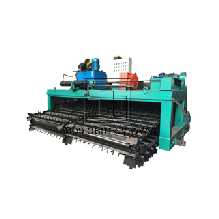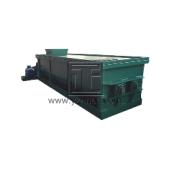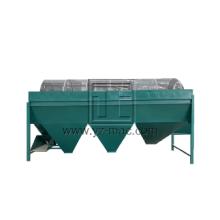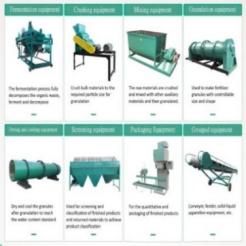Fertilizer blending systems
Fertilizer blending systems are essential in the agricultural industry for creating customized fertilizer blends tailored to specific crop and soil requirements. These systems offer precise control over the mixing and blending of various fertilizer components, ensuring optimal nutrient composition and uniformity.
The Significance of Fertilizer Blending Systems:
Customized Nutrient Formulations: Fertilizer blending systems allow for the creation of customized nutrient formulations to address specific crop nutrient needs and soil conditions. By adjusting the ratios and types of fertilizer components, farmers can optimize nutrient availability and promote healthy plant growth.
Precision and Consistency: Fertilizer blending systems offer precise control over the mixing process, ensuring consistent nutrient distribution throughout the fertilizer blend. This consistency is crucial for uniform nutrient uptake by plants, reducing the risk of over- or under-fertilization.
Cost Efficiency: By blending fertilizer components on-site, farmers can reduce costs associated with purchasing pre-blended fertilizers. Fertilizer blending systems provide flexibility in sourcing and adjusting nutrient components, allowing for cost-effective fertilizer production.
Components of Fertilizer Blending Systems:
Hoppers and Conveyors: Fertilizer blending systems typically include multiple hoppers for storing different fertilizer components. Conveyors or augers transport the components to the blending area, ensuring a continuous supply for the mixing process.
Weighing and Metering Systems: Precise measurement of fertilizer components is critical for accurate blending. Fertilizer blending systems incorporate weighing and metering systems that measure the quantities of each component, ensuring precise nutrient ratios in the final blend.
Mixing Units: The mixing unit is where the fertilizer components are thoroughly combined. It can include horizontal or vertical mixers, ribbon blenders, or paddle mixers, depending on the desired blending efficiency and the characteristics of the fertilizer components.
Control Systems: Fertilizer blending systems are equipped with control systems that monitor and regulate the blending process. These systems ensure accurate ingredient weighing, efficient mixing, and automatic adjustment of blending parameters.
Applications of Fertilizer Blending Systems:
Agricultural Farming: Fertilizer blending systems are widely used in agricultural farming, enabling farmers to create customized fertilizer blends specific to their crops and soil conditions. By tailoring nutrient compositions, farmers can optimize plant nutrition and maximize crop yields.
Fertilizer Production Facilities: Large-scale fertilizer production facilities utilize advanced blending systems to produce bulk quantities of blended fertilizers. These systems ensure consistent nutrient ratios, uniform mixing, and efficient production processes.
Soil and Crop Consulting Services: Fertilizer blending systems play a crucial role in soil and crop consulting services. Consultants use these systems to create precise nutrient recommendations based on soil tests, crop requirements, and yield goals. This allows for the formulation of tailored fertilizer blends to optimize plant nutrition and address nutrient deficiencies.
Research and Development: Fertilizer blending systems are utilized in research and development settings to test and evaluate new fertilizer formulations. These systems allow for the precise blending of various fertilizer components, facilitating the development of innovative fertilizer products and nutrient management strategies.
Fertilizer blending systems provide agricultural professionals with the means to create customized fertilizer blends, ensuring precise nutrient compositions tailored to specific crop and soil requirements. These systems offer precision, consistency, and cost efficiency in fertilizer production. With key components such as hoppers, conveyors, weighing systems, mixing units, and control systems, fertilizer blending systems enable accurate blending and uniform nutrient distribution.








